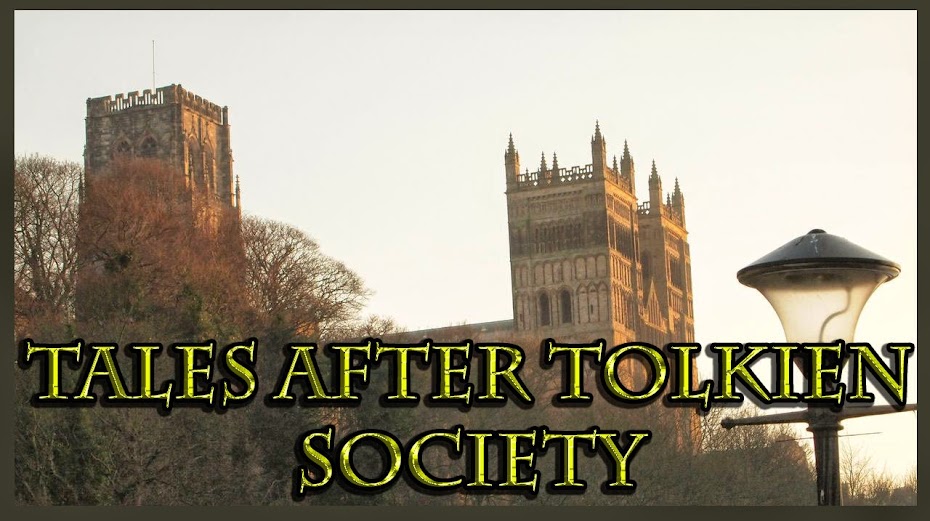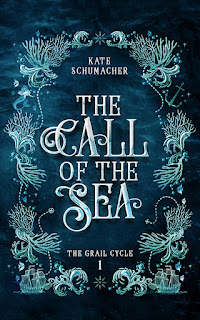𝔄 member of the Society raised the question, in reference to the Society's offerings for the 2024 International Congress on Medieval Studies, of what is meant by "the Tolkienian tradition." It's a good question, and one worth considering in this space (and possibly as a conference paper). While all such terms are nebulous in meaning--this very webspace acknowledges ambiguity in the terms upon which it relies early on in its existence--and will necessarily invite discussions along the margins, having some semblance of a solid sense of the term should be of some help. After all, one cannot move against a thing without knowing, at least in some way, what that thing is.
The answer returned to the member, with the acknowledgement that it was a first-pass answer, was (with some edits against late-night email typos)
 |
| The man, himself; image here, asserted as public domain |
[The] Tolkienian tradition of fantasy literature can be taken broadly as that emerging from the 1950s and later, published originally in English and working in a milieu predominantly derived from attested histories of what are now Germany, France, the Nordic countries, and the British Isles from roughly 450 to 1300 CE (so Tolkien, likely Katharine Kerr, arguably Robert Jordan and George RR Martin), or borrowing substantially and with little criticism or deviation from earlier-published works following that rubric (Feist's Riftwar novels, Brooks's Shannara works, Paolini's books). Reliance on simplified European feudalistic structures and the overt inclusion of magic deriving from inhered traits are typical features, but not sufficient in themselves to signal inclusion in the tradition. More or less satirical works may or may not be included.
Admittedly, there is some humor in calling a 128-word answer cursory, some joke about verbose academic text to be made. But it is a cursory answer, even if it gives some specifics and some few examples. (And those examples can, themselves, be questioned, severally. For instance, to what extent can Tolkien be considered to be part of a tradition that ostensibly derives from him? Also, considering the demographic breakdown of the authors listed, questions of inclusion and representation emerge, although it should be noted that the list of examples does not claim to be comprehensive--and, again, it's an initial answer that admits of a need for expansion.) More specifics and more examples will be helpful, and more detailed data would certainly be an asset.
Some of the initial answer seems apt to remain in place. It stands to reason that works in the Tolkienian tradition would necessarily need to follow the publication of the Legendarium (although Douglas A. Anderson's excellent work in identifying at least some of the underpinnings and precursors of Tolkien's works should be acknowledged). The initial publication of The Hobbit in 1937 might be taken as a start-date, although the publication of the Lord of the Rings, beginning in 1954, is probably more useful, as it is the latter that marked Tolkien off as the fantasy writer.
General subject matter would also seem to be something that would be like to remain in place. The focus on geographical and temporal sourcing appears as a commonplace, as has been identified even in the Society's own publications. It might be argued that some geographical expansion might be in order. (How much? Why to a given region and not to another?) Temporal expansion is probably less workable; the relative lack of current centralized authority against a history of having had it comes across as a typifying feature of Tolkienian tradition works (Does this make Asimov's Foundation novels part of the tradition?), as does the absence of gunpowder (yes, both Gandalf and Saruman might well make use of it, though their supernatural status means it might well not be gunpowder they are using, despite Jackson).
The employment of simplified European feudal structures deserves attention. It appears in Tolkien, both in the forms of competing and sometimes-subordinate kingships (there is a High King of the Eldar, for example, although there are many other kings among them) and in "more normal" hierarchical declensions (Gondor's Prince of Dol Amroth comes to mind). Kings, dukes, earls, and barons abound, yes, as do "lords" of indeterminate rank, but the overlapping of titles and remarkable fracturing of polities are rarely addressed--likely for good reason. (Is something part of the Tolkienian tradition that moves beyond three or four layers of titular nobility? That employs but one, or none?)
(Related, though not mentioned in the initial response, is the extent to which the narrative must center on those so ennobled to be considered part of the Tolkienian tradition. This does, however, seem to be fraught even in Tolkien; the Bagginses would seem to be gentry, rather than nobility, and Sam is neither until after the events of the War of the Ring, though Merry and Pippin come off as members of the landed aristocracy, for ill and for good. Most of the rest of the focal characters, however, are pretty clearly royals, nobles, or heirs thereof.)
Similarly, the involvement of the supernatural merits attention. While it is clear that access to some power that cannot necessarily be explained by readers'-world physics more or less has to be at play in works in the Tolkienian tradition, the nature of that power is less clear. Does its exercise require that the one so doing have an innate nature that transcends physical boundaries? (There's a case for this, given how often a magic-user has to have "a gift" to be able to use magic.) Is it an issue of study? Are both possibilities? To what extent? Can a work, in fact, be part of the Tolkienian tradition if it does not involve magic of some kind or another?
A useful next step would be to develop what can be taken as a usefully representative set of examples of Tolkienian tradition works, and hopefully a more inclusive one than given in the initial answer. From such a set, more detailed information can be extracted, not only such concerns as are noted above, but also patterns of language use (corpus linguists, take note!). That more detailed data would allow for more exacting answers, clearer definitions, and, it is to be hoped, richer and fuller analyses. But for that, more will be needed than one person's musings; comments from members of the Society and other interested parties will be welcomed. Please, feel free to contribute below!



